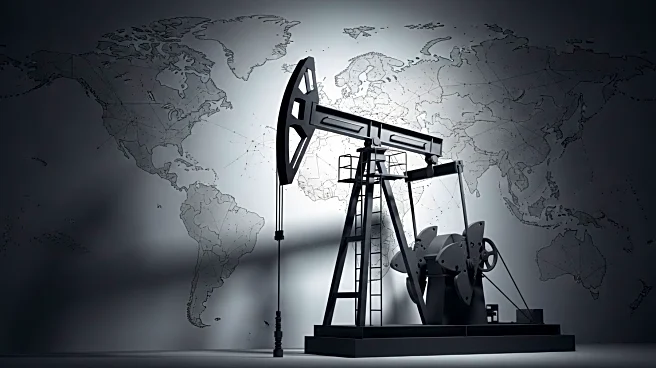What's Happening?
President Trump has called on NATO countries to cease purchasing Russian oil as a strategy to end the ongoing war in Ukraine. This appeal comes after Ukrainian drones targeted one of Russia's major oil refineries, causing a fire. The Kirishi refinery, operated by Surgutneftegas, is a significant producer of crude oil in Russia. The attack is part of a series of strikes by Ukraine on Russian oil infrastructure, which Kyiv claims supports Moscow's war efforts. In response to gasoline shortages exacerbated by these strikes, Russia has paused gasoline exports, implementing a full ban until September 30 and a partial ban until October 31. President Trump has expressed readiness to impose major sanctions on Russia, contingent upon NATO's agreement to stop buying Russian oil, criticizing the alliance's commitment to the war effort.
Why It's Important?
The call by President Trump for NATO to halt Russian oil purchases highlights the geopolitical complexities of the Ukraine conflict. If NATO complies, it could significantly impact Russia's economy, given its status as the world's second-largest oil exporter. This move could also shift the dynamics of international energy markets, affecting global oil prices and supply chains. For NATO countries, particularly those heavily reliant on Russian oil, this decision could lead to energy shortages and necessitate finding alternative sources. The situation underscores the strategic importance of energy resources in global politics and the potential for economic sanctions to influence international conflicts.
What's Next?
The next steps involve potential diplomatic negotiations within NATO to address President Trump's proposal. Countries like Turkey, Hungary, and Slovakia, which are significant buyers of Russian oil, may face pressure to diversify their energy sources. The European Union's existing plan to phase out Russian oil by 2028 could be accelerated, impacting energy policies across the continent. Additionally, the ongoing drone strikes and military actions in Ukraine may continue to affect regional stability and international relations, prompting further responses from global leaders.










